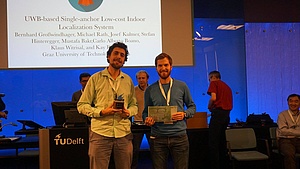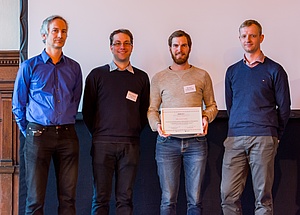Two LEAD PhDs received their doctorates under the auspices of the federal president
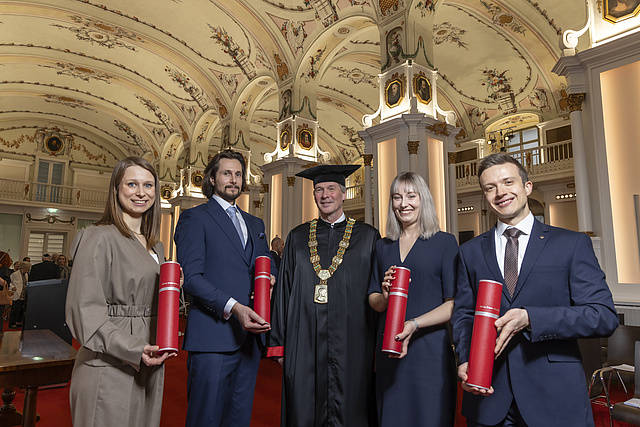
Congratulations to Andrea Pferscher and Barbara Gigerl, who received their doctorates “sub auspiciis Praesidentis rei publicae” (i.e., under the auspices of the President of the Republic)! See details here.
Bernhard Aichernig became a full professor and Institute leader at Uni Linz
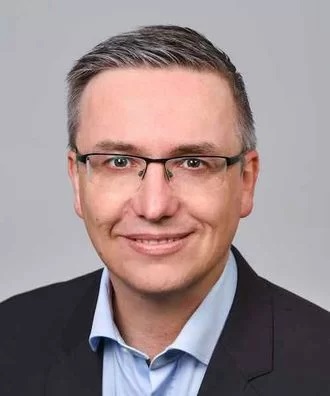
Bernhard Aichernig, who was a key researcher in the LEAD project as Associate Professor, was recently offered a full professorship and institute leadership at JKU in Linz. Congratulations!
Andrea Pferscher defends her PhD thesis successfully
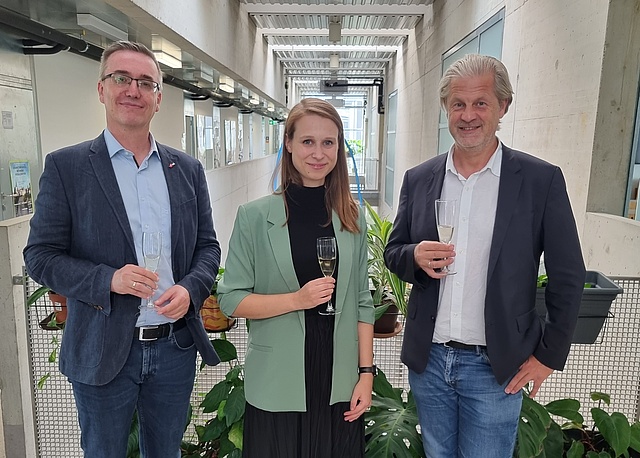
Congratulations to Andrea Pferscher for the succesfull defense of her PhD thesis carried out in the DependableThings project under supervision of Bernhard Aichernig.
Successful Symposium on Dependable IoT
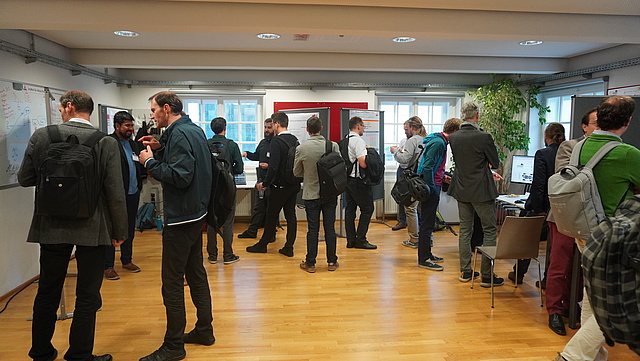
On Sept. 22 the third Symposium on Dependable IoT was held at TU Graz with about 150 participants from academia and industry, where the results from the second funding phase were presented. A keynote was delivered by Prof. Kim Larsen, Aalborg University. Matthias Himmler, Siemens, delivered and industry keynote - the symposium was held in cooperation with the Siemens Research and Innovation Ecosystem RIE, of which TU Graz is a member.
Best young author award at IFAC
Benedikt Maderbacher won the "best young author award" at the IFAC conference on analysis and design of hybrid systems 2021. Congratulations!
Dr. Samuel Weiser received Doctoral Degree under the auspices of the President of Austria
Samuel Weiser received his doctoral degree under the auspices of the President of Austria, the highest possible distinction for academic achievements for a doctoral degree in Austria. Congratulations, Samuel!
Phd students and postdocs collaborate in a one-week hackathon
All phd students and postdocs of the LEAD project worked together during a one-week hackathon to develop joint research. The hackathon used the RoboCup Logistics League (RCLL) which serves as one application scenario for the project. The students got an introduction into the use case itself and the software architecture and tools that are used at Graz University of Technology to face the RCLL challenge. Aligned with the topics of the 3 sub-projects (SP), students selected related problems and worked on them in small teams.
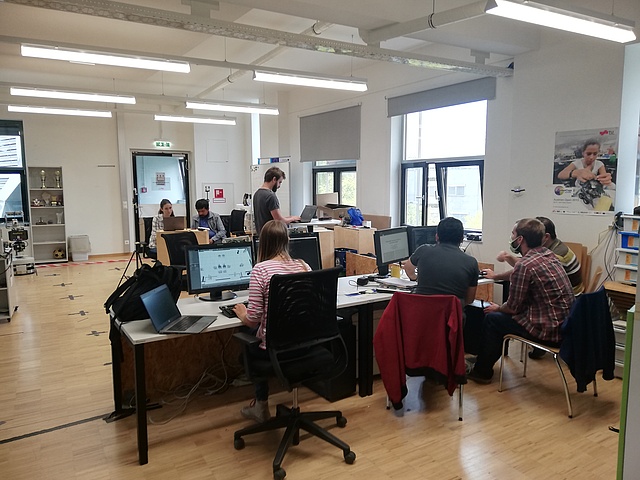
Great Success at the SCOTT International Student Contest
Bernhard Großwindhager and Hannah Brunner were awarded the 1st and 2nd place in the 2020 International Student Contest on Wirelessly Connected IoT organized within the EU project "SCOTT" and sponsored by NXP, AVL, Interizon, Virtual Vehicle, the University of Oslo, and Gdansk University of Technology.
At the contest, Bernhard Großwindhager and Hannah Brunner have presented their PhD and MSc thesis, respectively, which were successfully completed in 2020 within the networked embedded systems group of the Institute of Technical Informatics at Graz University of Technology and within the LEAD project "Dependable Internet of Things in Adverse Environments". The title of their awarded scientific work is "Robust, Efficient, and Scalable UWB-based Positioning using Multipath and Quasi-simultaneous Transmissions" and "Bringing Cross-Technology Communication to Life: Implementation of a Gateway-Free Smart Home using Off-The-Shelf Devices", respectively. Congratulations! More info: https://scottproject.eu/studentcontest/ (Photo Copyright: Virtual Vehicle).
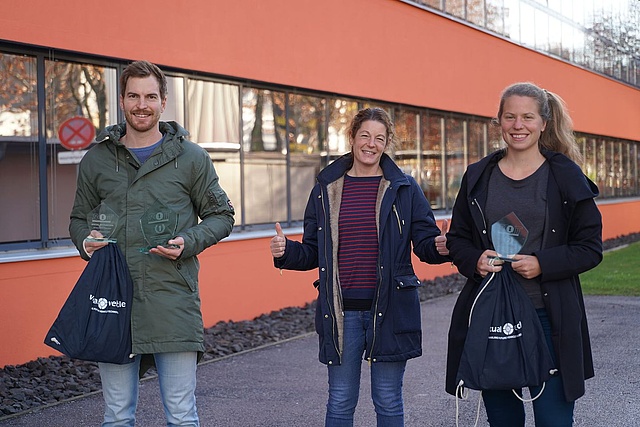
Young researchers making the Internet of Things safer
Interview with two young researchers, Andrea Pferscher and Dr. Markus Tranninger, from the LEAD project.
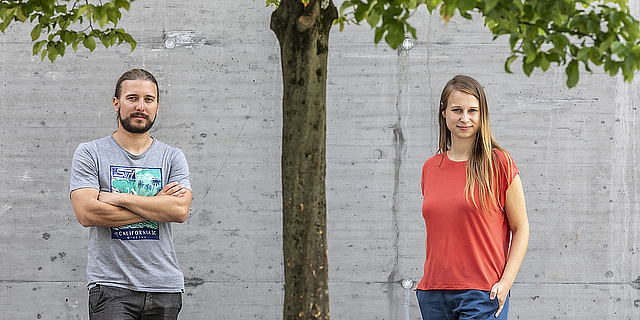
Best presetentation award
Markus Tranninger has received the best presentation award at the 54th Control Enginnering Colloquium in Boppard, Germany. Congratulations!
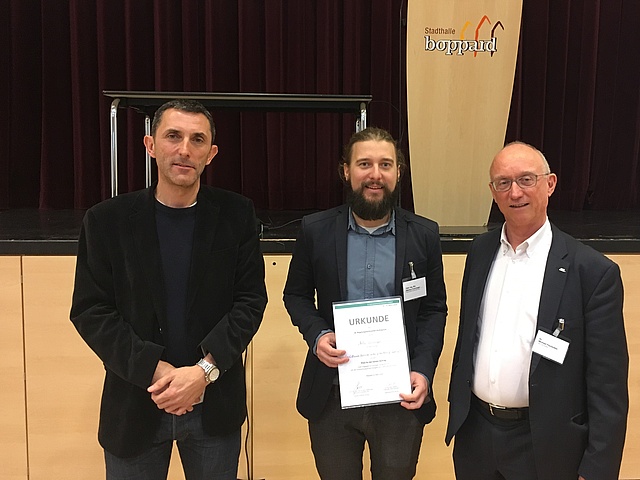
LEAD Kickoff Workshop- Second project period
For launching the second project period a Kickoff Workshop was organized on January 20, 2020.
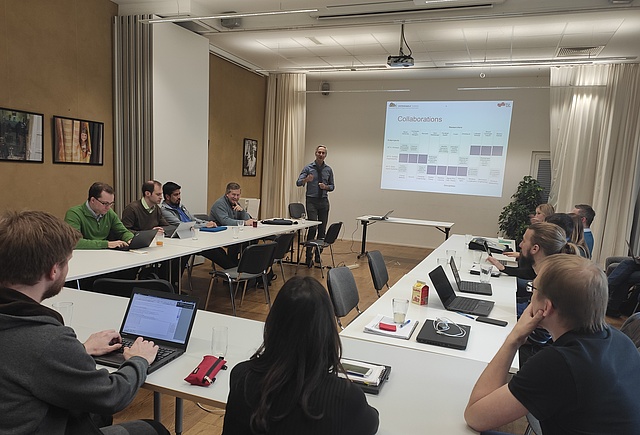
LEAD project demonstration during Long Night of Research on April 13
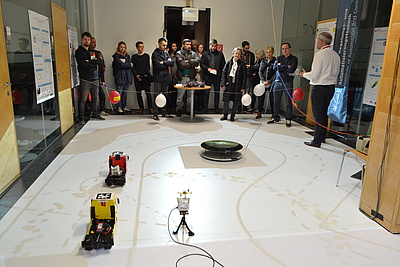
Best Demo Award at ACM SenSys 2017
Delft, The Netherlands. November 7, 2017The demo entitled "UWB-based Single-anchor Low-cost Indoor Localization System" presented by Bernhard Grosswindhager and Michael Rath at the 15th ACM Conference on Embedded Networked Sensor Systems (SenSys) won the best demonstration award. The demo is the result of work in the "Dependable Wireless Communication and Localization" sub-project.
Best Poster Award at EWSN 2017
Uppsala, Sweden. February 22, 2017The poster entitled "Switchable Directional Antenna System for UWB-based Internet of Things Applications" presented by Bernhard Grosswindhager at the International Conference on Embedded Wireless Systems and Networks (EWSN 2017) won the best poster award. The poster is the result of work in the "Dependable Wireless Communication and Localization" subproject.

